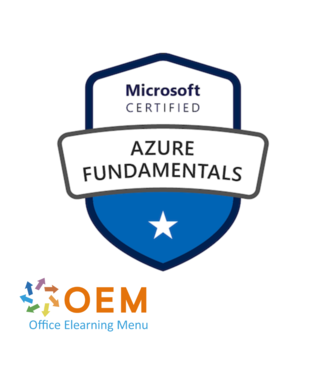Exam DP-900 Microsoft Azure Data Fundamentals
This exam is intended for candidates beginning to work with data in the cloud.
Candidates for this exam should have foundational knowledge of core data concepts and how they are implemented using Microsoft Azure data services, and should be familiar with the concepts of relational and non-relational data, and different types of data workloads such as transactional or analytical.
Skills measured
Audience profile
This exam is an opportunity to demonstrate your knowledge of core data concepts and related Microsoft Azure data services. As a candidate for this exam, you should have familiarity with Exam DP-900’s self-paced or instructor-led learning material.
This exam is intended for you, if you’re a candidate beginning to work with data in the cloud.
You should be familiar with:
- The concepts of relational and non-relational data.
- Different types of data workloads such as transactional or analytical.
You can use Azure Data Fundamentals to prepare for other Azure role-based certifications like Azure Database Administrator Associate or Azure Data Engineer Associate, but it is not a prerequisite for any of them.
Skills at a glance
- Describe core data concepts (25–30%)
- Identify considerations for relational data on Azure (20–25%)
- Describe considerations for working with non-relational data on Azure (15–20%)
- Describe an analytics workload on Azure (25–30%)
Describe core data concepts (25–30%)
Describe ways to represent data
- Describe features of structured data
- Describe features of semi-structured
- Describe features of unstructured data
Identify options for data storage
- Describe common formats for data files
- Describe types of databases
Describe common data workloads
- Describe features of transactional workloads
- Describe features of analytical workloads
Identify roles and responsibilities for data workloads
- Describe responsibilities for database administrators
- Describe responsibilities for data engineers
- Describe responsibilities for data analysts
Identify considerations for relational data on Azure (20–25%)
Describe relational concepts
- Identify features of relational data
- Describe normalization and why it is used
- Identify common structured query language (SQL) statements
- Identify common database objects
Describe relational Azure data services
- Describe the Azure SQL family of products including Azure SQL Database, Azure SQL Managed Instance, and SQL Server on Azure Virtual Machines
- Identify Azure database services for open-source database systems
Describe considerations for working with non-relational data on Azure (15–20%)
Describe capabilities of Azure storage
- Describe Azure Blob storage
- Describe Azure File storage
- Describe Azure Table storage
Describe capabilities and features of Azure Cosmos DB
- Identify use cases for Azure Cosmos DB
- Describe Azure Cosmos DB APIs
Describe an analytics workload on Azure (25–30%)
Describe common elements of large-scale analytics
- Describe considerations for data ingestion and processing
- Describe options for analytical data stores
- Describe Azure services for data warehousing, including Azure Synapse Analytics, Azure Databricks, Microsoft Fabric, Azure HDInsight, and Azure Data Factory
Describe consideration for real-time data analytics
- Describe the difference between batch and streaming data
- Identify Microsoft cloud services for real-time analytics
Describe data visualization in Microsoft Power BI
- Identify capabilities of Power BI
- Describe features of data models in Power BI
- Identify appropriate visualizations for data


